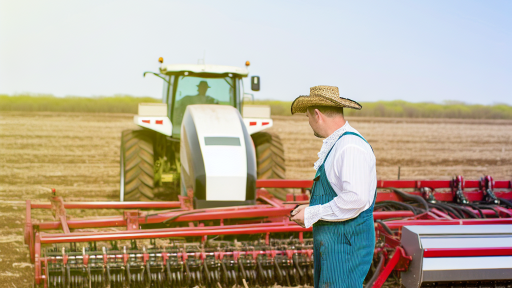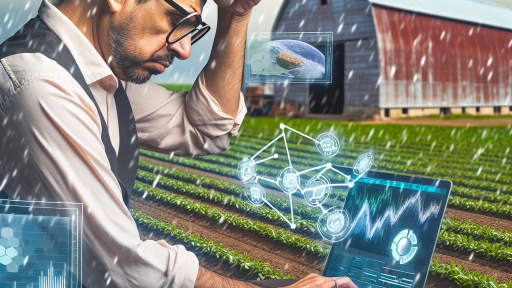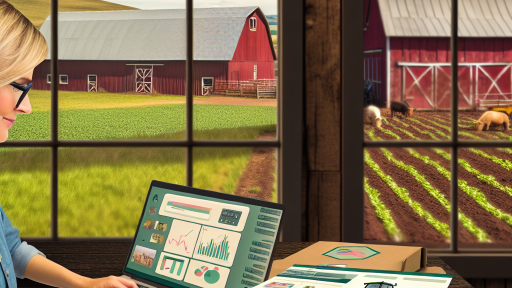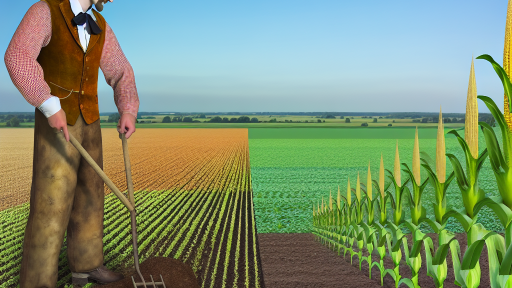Introduction to Blockchain Technology and its Relevance to Agriculture
Blockchain technology revolutionizes how we manage data across various sectors.
In agriculture, it enhances transparency and efficiency throughout the supply chain.
This technology creates a decentralized system for recording transactions.
As a result, all participants can access reliable data regarding products and processes.
This feature reduces inefficiencies caused by data silos.
Moreover, it mitigates the risk of fraud by ensuring data integrity through cryptography.
Consequently, stakeholders can track food products from farm to table seamlessly.
Thus, trusting the food supply chain improves as consumers demand transparency.
A growing number of agricultural firms adopt blockchain solutions for accountability.
For example, major produce companies utilize blockchain to enhance traceability.
By doing so, they clearly communicate the origin and quality of their products.
This not only increases consumer confidence but also provides competitive advantages.
Additionally, blockchain technology can help streamline payments to farmers.
Smart contracts automate transactions based on predefined conditions.
This capability reduces costs associated with intermediaries and paperwork.
Transform Your Agribusiness
Unlock your farm's potential with expert advice tailored to your needs. Get actionable steps that drive real results.
Get StartedIn turn, farmers can receive payments quicker, enhancing cash flow.
For developing regions, this technology provides a pathway to financial inclusion.
Access to digital currencies enables underserved farmers to participate in global markets.
Blockchain technology holds great potential for the agricultural sector.
It paves the way for cost reduction, increased trust, and more effective supply chains.
Overview of Agricultural Supply Chains
Structure of Agricultural Supply Chains
Agricultural supply chains consist of multiple interconnected stages.
These stages include production, processing, distribution, and retail.
Farmers begin the process by growing crops or raising livestock.
Next, processing facilities convert raw products into marketable goods.
After processing, distributors transport products to retailers.
Retailers then sell these goods to end consumers.
Technology plays a crucial role at each stage of this chain.
Challenges Faced in Agricultural Supply Chains
Agricultural supply chains face numerous challenges that impact efficiency.
One major challenge is lack of transparency among stakeholders.
This opacity often leads to mistrust and disputes.
Additionally, inefficiency in logistics can cause delays.
Such delays result in product spoilage and increased costs.
Another challenge is the vulnerability to market fluctuations.
For instance, changes in weather affect crop yields.
These factors create unpredictability in the supply chain.
Furthermore, inadequate technology adoption hampers growth.
It limits farmers’ ability to access real-time data.
Examples of Current Issues
Currently, a lack of traceability exists in many supply chains.
This issue prevents consumers from knowing product origins.
Showcase Your Farming Business
Publish your professional farming services profile on our blog for a one-time fee of $200 and reach a dedicated audience of farmers and agribusiness owners.
Publish Your ProfileMoreover, food safety recalls become complicated without clear tracking.
Also, farmers often receive low prices for their products.
This situation arises from middlemen taking significant cuts.
These examples illustrate the urgent need for innovative solutions.
How Blockchain Enhances Transparency and Traceability in Supply Chains
Improving Supply Chain Transparency
Blockchain technology offers unprecedented transparency in agricultural supply chains.
Each transaction records immutable data across a distributed ledger.
This visibility fosters trust among stakeholders, including farmers, distributors, and consumers.
Farmers can prove the origin and quality of their products easily.
As a result, consumers gain confidence in the food they purchase.
Enhancing Traceability of Agricultural Products
Traceability is crucial in the event of food safety issues.
Blockchain allows for rapid tracking of products throughout the supply chain.
In case of recalls, companies can pinpoint affected products swiftly.
This rapid response minimizes health risks and protects brand reputation.
Moreover, consumers can track the journey of their food from farm to table.
Real-time Data Sharing Among Stakeholders
Blockchain facilitates real-time data sharing among multiple stakeholders.
Farmers, suppliers, and retailers access up-to-date information effortlessly.
This streamlined communication reduces delays and errors in logistics.
Additionally, all parties can respond to market demands more swiftly.
Consequently, inefficiencies that often lead to increased costs diminish.
Improving Verification Processes
Verification of product authenticity becomes easier with blockchain.
The technology allows for secure sharing of certifications and documentation.
Both organic and fair trade labels can be verified with a few clicks.
As a result, organizations obtain assurance about the integrity of their products.
This simplification enhances market access for smallholder farmers.
Reducing Fraud and Mislabeling
Fraudulent activities and mislabeling are prevalent in agricultural supply chains.
Blockchain’s immutable records act as a deterrent against such practices.
Stakeholders can validate claims related to sustainability and quality easily.
Transparency contributes to building a fairer market for everyone involved.
Thus, the agricultural industry can achieve greater accountability.
See Related Content: Enhancing Soil Health Through Drone-Assisted Farming
Cost Reduction Mechanisms
Streamlining Processes through Smart Contracts
Smart contracts revolutionize agricultural supply chains by automating processes.
They eliminate the need for intermediaries, thereby reducing costs.
These contracts operate on blockchain technology, ensuring transparency and security.
Farmers can set predefined conditions for transactions.
When these conditions are met, the contracts execute automatically.
This automation minimizes delays and errors in payments.
Additionally, smart contracts improve trust among participants.
Every party can verify transactions in real-time.
This verification fosters a reliable and efficient supply chain.
Enhancing Traceability
Smart contracts also enhance traceability in agricultural products.
Showcase Your Farming Business
Publish your professional farming services profile on our blog for a one-time fee of $200 and reach a dedicated audience of farmers and agribusiness owners.
Publish Your ProfileProducers can record every step of the supply chain on the blockchain.
This transparency helps in tracking product origin and quality.
Consumers increasingly demand more information about their food.
This demand prompts farmers to adopt traceable practices.
Moreover, traceability reduces risks related to food safety issues.
In case of a recall, affected products can be quickly identified.
Reducing Operational Costs
By using smart contracts, farmers can significantly reduce operational costs.
They can automate invoicing and payment processes.
As a result, manual labor and administrative burdens decrease.
This automation allows farmers to focus on core activities.
Consequently, they can improve productivity and profitability.
Moreover, less reliance on traditional banking reduces transaction fees.
Therefore, farming operations can maintain more of their revenue.
Gain More Insights: How Agri-Fintech Is Improving Access To Credit And Financing For Farmers
Case Studies: Successful Implementation of Blockchain in Agriculture
Overview of Blockchain Applications
Blockchain technology enables secure and transparent transactions.
It enhances traceability across agricultural supply chains.
Moreover, it reduces fraud by validating participant identities.
Case Study: Farm to Fork Initiative
The Farm to Fork Initiative revolutionized how consumers connect with producers.
Blockchain ensured each product’s origin was verifiable.
This increased consumer confidence and brand loyalty.
As a result, sales of participating farms escalated significantly.
Case Study: Provenance and Sustainable Sourcing
Provenance, a startup, utilizes blockchain to promote sustainable sourcing.
The platform traces the journey of products from farm to store.
Consumers now access detailed information about ingredients.
This transparency boosts ethical shopping choices and sales.
Case Study: Walmart’s Traceability Program
Walmart adopted blockchain to enhance food safety measures.
The program tracks fresh produce from farm to shelf.
In the event of foodborne illness, quick recalls become feasible.
This initiative reduces waste and improves customer trust.
Case Study: KTN and Digital Land Registry
KTN partnered with blockchain developers to create a digital land registry.
This innovative system secures land titles and ownership records.
Farmers gain access to financing through verified documentation.
Consequently, land disputes reduce, facilitating smoother transactions.
Benefits Realized from Blockchain Implementation
Cost savings across supply chains are substantial.
Improved efficiency leads to faster transaction times.
Enhanced traceability fosters better practices in sourcing.
Farmers and consumers alike benefit from increased transparency.
Find Out More: The Impact Of Biotechnology On Sustainable Farming
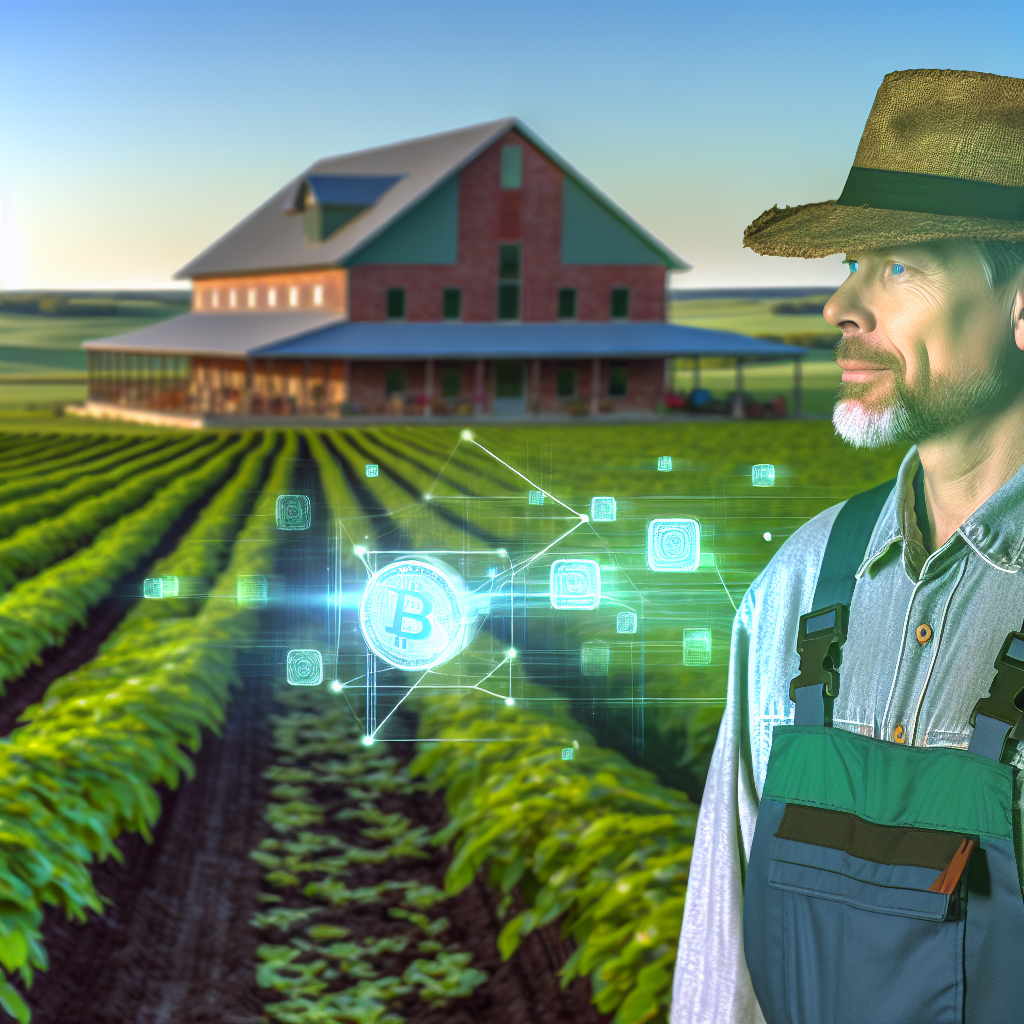
Potential Barriers to Adoption
Technological Challenges
Implementing blockchain requires new technical infrastructure.
Many farms lack the necessary resources for this level of technology.
Showcase Your Farming Business
Publish your professional farming services profile on our blog for a one-time fee of $200 and reach a dedicated audience of farmers and agribusiness owners.
Publish Your ProfileAdapting to blockchain can also demand significant changes in operations.
Moreover, finding qualified personnel remains a daunting task.
Training employees to use blockchain technology incurs extra costs.
Cost Implications
Initial implementation costs can be overwhelming for many agriculture businesses.
Investments in technology and training often strain budgets.
Smallholder farms are particularly vulnerable due to limited finances.
Notably, ongoing maintenance costs can compound financial challenges.
Additionally, the uncertainty of ROI can deter potential adopters.
Acceptance Among Stakeholders
Farmers may resist adopting new systems due to fear of change.
Long-standing practices create inertia that is hard to overcome.
Trust issues between stakeholders can complicate collaboration.
Consequently, effective communication is essential for building trust.
Furthermore, convincing all suppliers and distributors poses additional hurdles.
Regulatory and Compliance Issues
Regulations surrounding blockchain technology remain unclear in agriculture.
Compliance with existing regulations can deter innovation.
Uncertainty in legal frameworks adds complexity to adoption efforts.
Entrenched bureaucratic processes can impede the speed of adoption.
Thus, addressing these regulatory challenges is vital for progress.
Delve into the Subject: Choosing The Right Automated Machinery For Your Farm
Future Trends: The Evolving Role of Blockchain in Sustainable Agriculture
Innovative Applications of Blockchain
Blockchain technology offers unique solutions for the agricultural sector.
It enhances transparency in the supply chain.
This transparency fosters trust among consumers and producers.
Moreover, blockchain enables traceability of products from farm to table.
This feature helps ensure food safety and quality.
Streamlining Operations
Blockchain reduces operational costs in agriculture.
By automating processes, it minimizes the need for intermediaries.
This streamlining directly lowers transaction costs.
Additionally, it decreases the risk of fraud and errors.
Empowering Smallholder Farmers
Blockchain provides smallholder farmers access to new markets.
Through direct-to-consumer models, they increase their profit margins.
It also facilitates sharing of vital agricultural information.
This information enhances decision-making for these farmers.
Environmental Impact and Sustainability
The integration of blockchain can lead to more sustainable practices.
By tracking resource use, farmers optimize inputs.
This optimization reduces environmental footprints effectively.
Consequently, sustainable methods become more economically feasible.
Future Challenges and Considerations
Despite its potential, blockchain faces challenges in agriculture.
Scalability is a significant concern for many stakeholders.
Moreover, there is a need for industry-wide standards.
Addressing these issues will be critical for widespread adoption.
Showcase Your Farming Business
Publish your professional farming services profile on our blog for a one-time fee of $200 and reach a dedicated audience of farmers and agribusiness owners.
Publish Your ProfileThe Impact of Blockchain on the Future of Agricultural Economics
Cost Reduction Through Transparency
Blockchain enhances transparency in agricultural supply chains.
This transparency helps farmers track their produce from farm to consumer.
Consequently, it reduces fraud and improves trust among stakeholders.
Farmers can manage inventory more effectively through real-time data.
This efficiency leads to lower storage and transportation costs.
Streamlining Processes with Smart Contracts
Smart contracts automate various supply chain processes.
These contracts execute automatically when conditions are met.
This reduces the need for intermediaries, saving time and money.
Moreover, smart contracts ensure payments are timely and secure.
This enhances cash flow for farmers and suppliers alike.
Enhancing Traceability for Quality Assurance
Blockchain enables detailed traceability of agricultural products.
Consumers increasingly demand information about food sources.
This demand drives quality assurance throughout the supply chain.
Traceability allows farmers to address quality issues quickly.
Overall, this improves product reliability and customer satisfaction.
Facilitating Access to Funding and Insurance
Blockchain can simplify access to financial resources for farmers.
By providing verified data, farmers can secure loans more easily.
Additionally, insurers can assess risks accurately through blockchain data.
This leads to fairer insurance premiums and better coverage options.
As a result, farmers can invest in sustainable practices.
Promoting Collaboration and Innovation
Blockchain fosters collaboration among various supply chain participants.
This collaboration encourages innovation and shared best practices.
Farmers can access new technologies that improve yield and efficiency.
Also, partnerships can emerge to create more sustainable practices.
Such innovation strengthens the agricultural sector’s competitiveness.
Implications for Future Agricultural Economies
As blockchain technology evolves, its impact will grow significantly.
Cost reductions will likely lead to increased profitability for farmers.
Additionally, the agricultural sector will attract more investment.
This investment can drive advancements in technology and research.
Ultimately, blockchain can redefine agricultural economics for the better.
Additional Resources
Artificial intelligence and blockchain implementation in supply …

